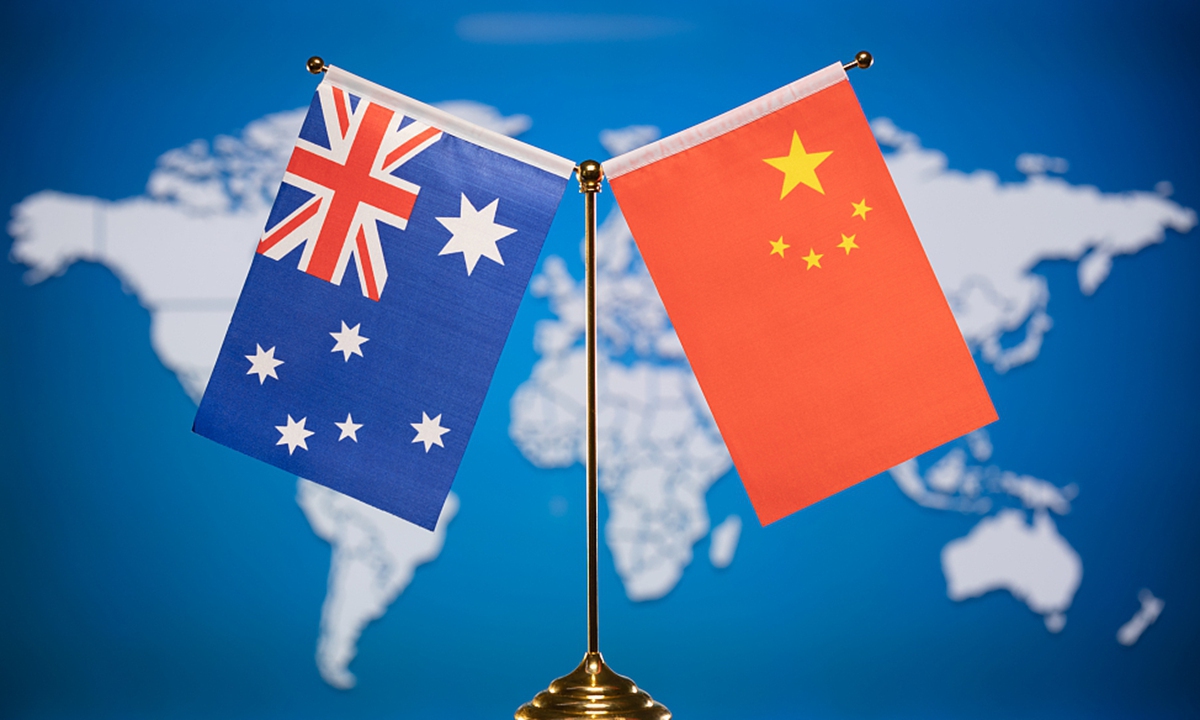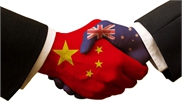Australian officials, firms step up push for business ties with China, amid hostility back home

China Australia Photo: VCG
Several Australian officials and business leaders are in China for meetings and visits to various Chinese regions, in what appears to be a stepped-up attempt to push for greater business ties with China, even as many Australian politicians and media outlets seek to maintain a hostile approach toward China.
At the Boao Forum for Asia (BFA)'s annual conference in South China's Hainan Province, some Australian representatives argue that they can continue with business as usual, while ignoring the "noise" over bilateral diplomatic relations.
"We are a global business and business is business. So, I think the business community here has got to stay above all that noise and just get on with it," Richard Mark Hutchinson, CEO of Fortescue Future Industries, a green energy firm in Australia, told the Global Times on the sidelines of the BFA meeting.
Hutchinson said that he had a very warm welcome in China and that "when you get into the provinces and you actually talk to businesses, they want to do business. That's what I love about China. They love to do business."
At the BFA meeting, Australian firms are in particular pushing for cooperation with China in the area of green energy, repeatedly highlighting climate change as a pressing global issue that goes beyond individual countries or regions.
Asked by the Global Times about the impact of bilateral tensions on business cooperation during a panel discussion at the BFA on Wednesday, Andrew Forrest, corporate member of the BFA Board and chairman of Australia's Fortescue Metals Group, said that he has "no tolerance" for geo-strategic jostling when it comes to tackling the critical issue of global warming.
He said that he would certainly push back against any nations that want to separate other nations from critical dialogue for regional solutions to global warming.
Before attending the BFA meeting, Forrest visited Central China's Hunan Province, where he met with local officials and oversaw the signing of a memorandum of understanding for cooperation on supply chains for advanced green energy technologies.
At the BFA meeting, several other Australian representatives are also listed in the official agenda, including Tennealle O'Shannessy, CEO of IDP Australia, Xavier Simonet, CEO of Australian Trade and Investment Commission, and Australia's Ambassador to China Graham Fletcher.
Australia's Assistant Trade Minister Tim Ayres also attended the BFA meeting. After attending a panel discussion also on green energy, he said he had very good engagement with Chinese businesses and Australian businesses that are investing in China.
"Every opportunity for dialogue is very valuable," Ayres told the Global Times on the sidelines of the BFA. "I look forward to continuing engagement between our governments as we make sure we stabilize this relationship."
While bilateral relations have shown improving signs in recent months, continued hostility from certain Australian politicians and media outlets continue to exert pressure on bilateral ties. Australian officials' visits to China face tough scrutiny back home. Daniel Andrews, premier of Australia's Victoria state, faced criticism in Australia for not bringing along Australian reporters with him.
Still, some Australian businesses argue that dialogue is necessary.
"We just have to continue to have the dialogue. We've all gone through a rough few years together with COVID, we came out of that together and I think now is the time to sit down and have dialogues… we would do what we can to make sure the business community just gets on with it," Hutchinson said.
However, while there has been growing dialogue recently, the hostility in Canberra directed at China and Chinese firms continues to put great pressure on bilateral relations, and the so-called AUKUS nuclear submarine deal among the US, the UK and Australia is also adding to tensions, which could risk disruptions in business cooperation, Chinese experts noted.



